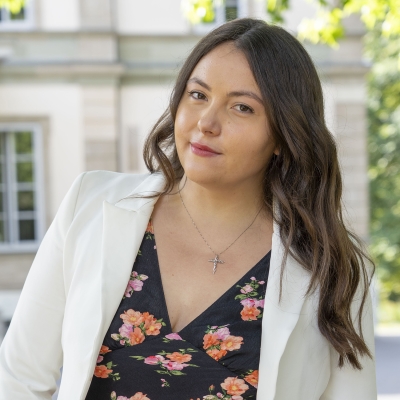Maria Immacolata Fico is a Research Collaborator focusing on disinformation as a tool of war, examining its impact on children’s rights and analyzing the agency and responsibilities of non-state actors in these evolving conflict landscapes. Maria holds the Academy’s Advanced LL.M.- MAS in International Humanitarian Law and Human Rights (magna cum laude). Her LL.M. Thesis, supervised by Prof. Dr. Andrea Bianchi, is titled “The ‘Corporate Effective Control Test’: Rethinking Accountability Beyond Consent. From Non-State Armed Groups to Multinational Corporations - A Functional Doctrine of International Accountability”.
Previously, Maria worked as Legal Assistant to Dr. Patrícia Galvão Teles at the UN International Law Commission, contributing to work on immunity of state officials, dispute settlement, sea-level rise, and general principles of law. She also interned at the UN Office of the High Commissioner for Human Rights (European and Central Asia Section), focusing on children’s rights, business and human rights, and minority protection. Earlier, she was a Research Assistant at Leiden University on the use of digital open-source evidence before the ICC proceedings; a Facilitator Assistant at the European Parliament’s Conference on the Future of Europe; and she also gained experience in privacy and cybersecurity compliance at SAP/LeanIX.
Maria also holds an LL.M. in Public International Law (cum laude) from Leiden University, where she represented the University in the Philip C. Jessup Moot Court, winning the Dutch National Rounds. Her LL.M. Thesis, titled "Navigating the Legal Landscape: A Critical Examination of UNCTAD's Engagement in Present-Day Development Strategies.” was written under the supervision of Prof. Dr. Niels Blokker. She earned her LL.B. in European Law from Maastricht University and her Thesis, supervised by Prof. Antonia Waltermann, was titled "The Potential of a Neuro-Law Revolution: Examining Skeptical Objections to the Churchlands' Eliminativist View of Intentionality and Mental States in the Context of Criminal Responsibility, While Exploring the Possibility of a Non-Radical Dialogue Between Neuroscience and Law.” (cum laude).


